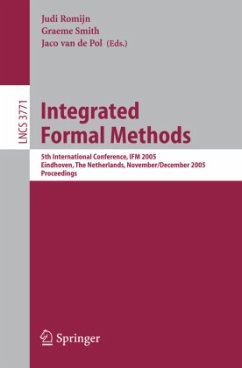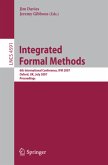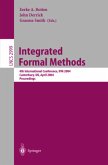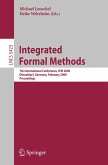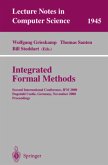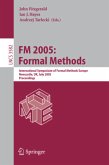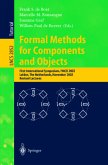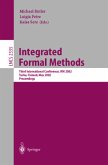This is the 5th edition of the International Conference on Integrated Formal Methods (IFM). Previous IFM conferences were held in York (June 1999), D- stuhl (November 2000), Turku (May 2002) and Canterbury (April 2004). This year s IFM was held in December 2005 on the campus of the Technische Univ- siteit Eindhoven in The Netherlands. This year IFM received 40 submissions, from which 19 high-quality papers wereselectedbytheProgramCommittee.Besidesthese,theproceedingscontain invited contributions by Patrice Godefroid, David Parnas and Doron Peled. It was 10 years ago that Jonathan P. Bowen and Michael G. Hinchey p- lished their famous Ten Commandments of Formal Methods in IEEE Computer 28(4). Their very ?rst commandment Thou shalt choose an appropriate - tation touches the heart of the IFM theme: Complex systems have di?erent aspects, and each aspect requires its own appropriate notation. Classical examples of models for various aspects are: state based notations andalgebraicdatatypesfordata,processalgebrasandtemporallogicsforbeh- ior, duration calculus and timed automata for timing aspects, etc. The central question is how the models of di?erent notations relate. Recently, Bowen and Hinchey presented their Ten Commandments Revisited (in: ACM proceedings of the 10th InternationalWorkshop on Formal Methods for Industrial Critical S- tems). Theydistinghuishvariationsin combiningnotations,rangingfromloosely coupled viewpoints to integrated methods. Thelooselycoupledviewpointsarequitepopular(cf.thesuccessofUML)and are easy to adopt in a leightweight process. They could be useful for specifying and analyzing isolated system aspects. However, the main advantage of formal methods being able to specify and verify the correctness of complete systems islost.
Hinweis: Dieser Artikel kann nur an eine deutsche Lieferadresse ausgeliefert werden.
Hinweis: Dieser Artikel kann nur an eine deutsche Lieferadresse ausgeliefert werden.

